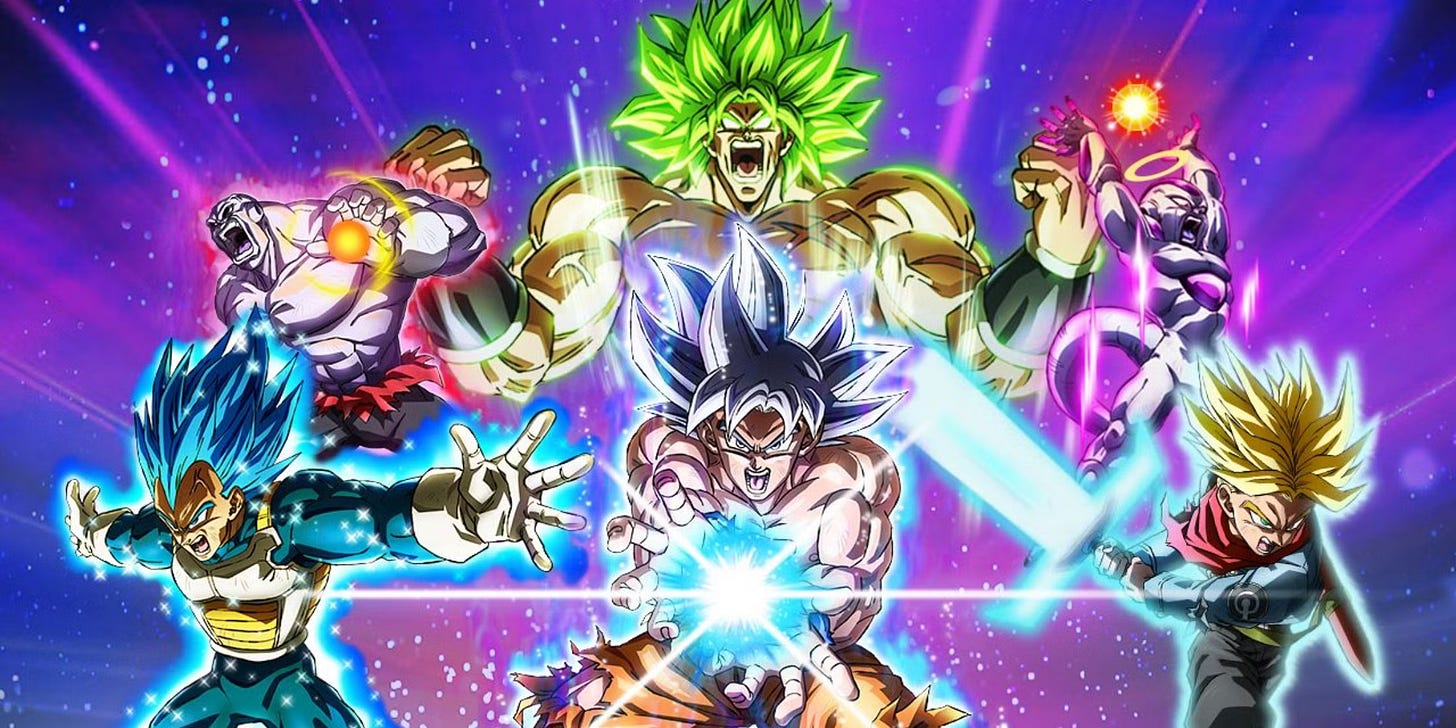Sony's proposed takeover of Kadokawa is a crucial pretext to the coming tide of consolidation
Plundering the Japanese conglomerate's warchest is Sony delivering their competition a Highlander ultimatium: there can only be one.
“Vertical integration” is a phrase uttered with great fear, particularly to those concerned with the conflict between art and commerce. In the most illustrative terms I can muster, imagine a Katamari Damacy-esque ball, wantonly collecting assets to add to its intimidating stature - albeit without the whimsy to divert your attention from the chaos it is causing. Typically, this process is subject to great scrutiny from antitrust bodies, regulating companies from amassing a monopoly in their chosen field. Paradoxically, these organisations are designed to empower consumers and promote healthy business practices - while stratifying expenditures and impeding upon the principles of a “free market”. An argument can be made that if a company provides an exemplary service, then it should remain as a standalone station: how extensive is the involvement of the government in private enterprise?
For instance, Trump’s cabinet of curiosities appears to have taken a hardline approach on regulating big tech. His administration will reportedly pursue a divestment of Chrome from Google’s portfolio, initiated during Biden’s term. Presumptive Attorney General Matt Gaetz, now Trump’s second-most scrupulous stooge after Dr. Oz, will likely endeavour to break apart its primary players writ large. The technocrats that were swift to grovel before them are at the mercy of a tempestuous, erratic administration. Thanks to Elon Musk’s tendrils infesting the latter days of Trump’s campaign into his comprehensive victory, competitors to the man who would be DOGE may face additional strangulation from regulators.
In spite of greater cultural decline, Hollywood executives seem to believe a lax attitude on mergers and acquisitions outside of tech portend stabilisation. The industry’s most derided demagogue in David Zaslav is sewing the seams of his golden parachute, noting that this shake-up to the status quo could cause vital consolidation, coming in the wake of Paramount’s acquisition by Skydance and NBCUniversal splitting its cable channels - save for Bravo - from its main operations. Warner Bros. Discovery will likely be subsumed by this leaner NBCUniversal unit; Paramount has enough Oracle capital behind it to stave off interest. How does this impact us, the humble consumer? Streaming has broken the film industry apart, rendering once mighty empires of entertainment mere rings around Netflix’s celestial centre. Disney are recuperating from their unsuccessful pivot to streaming video, slowly raising the regard of their primary brands in Pixar and Marvel - sorry, Star Wars, maybe another trilogy will fix it. Amazon and Apple, however, do not have an established identity in exhibition, leading to fatal misfires in Red One and Fly Me to the Moon (a pretty pleasant time at the theatres!) respectively; Apple’s abandonment of Wolfs and Amazon’s circus of controversy surrounding Road House cast further questions on their means of distribution.
Now, this delivers me to a tale of acquisition from abroad: a proposed merger of two Japanese conglomerates in Sony and Kadokawa. You may be acutely aware of the former; the latter may be a little mysterious. Kadokawa are a sprawling empire of entertainment: their holdings extend to film, literature, gaming, telecommunications, and - crucial to Sony’s considerations - anime. They are a hermetic company, capable of conceiving, creating, and distributing their content: fully integrated, in short. Sony’s proposition is an authoritative takeover, further solidifying their content pipeline. This acquisition would imbue Sony with greater measures of production and exhibition, both within Japan and anime’s burgeoning global audience. Aside from the four production studios to their name, the company owns the largest anime platform in Crunchyroll: strengthened through its integration of Funimation in 2024 following its formal acquisition in 2021 - from AT&T’s WarnerMedia, who would later surrender themselves to David Zaslav. It ties together, after all!
Reports on this prospective merger have focused primarily on FromSoftware’s role in the proceedings. Kadokawa owns 69.66% of the studio, against Sony’s own tally of 14.09%. This acquisition would effectively render FromSoftware a first-party studio; the only other major shareholder would be Sixjoy Hong Kong, a subsidiary of Tencent with 16.25%. That a future successor to Elden Ring would be exclusive to PlayStation represents a significant hurdle for Microsoft in raising the appeal of its platforms; brokering a deal would likely require further concessions to their agreements on Activision-Blizzard. However, Sony would receive additional purview over Spike Chunsoft: the studio behind Dragon Ball Sparking! Zero - which sold an astounding three million copies in one day - and the distributor of several prominent Western titles in Japan, namely Cyberpunk 2077, Baldur’s Gate 3, and Dying Light 2. Thus, in addition to owning the most celebrated Triple A studio of its generation, Sony would received an additional distribution apparatus, further streamlining its distribution and bolstering its revenue.
Sparking! Zero ignited the industry last month, delivering an old-fashioned fighter with modern flourishes.
With regard to manga, Sony would have its own in-house publisher and e-shop, ensuring a greater unity between its printed and animated material. Sony would become the definitive voice in anime - it is because of their superior service, right? Well, consolidation is the enemy of creativity. No matter how desperately their teams fight to retain autonomy, their works will be forced to fit a particular commercial mold. Anime will be optimised for Crunchyroll, exclusive to a platform that forbade viewers from watching their previously purchased Funimation content. Consumers will be beholden to the whims of a single company, which will inevitably stagnate due to a lack of explicit competition. Sony must be held accountable for their practices in turn, ensuring a fair marketplace for creators and customers.
For now, their deal will languish in the lands between, torn to tarnished shreds.





